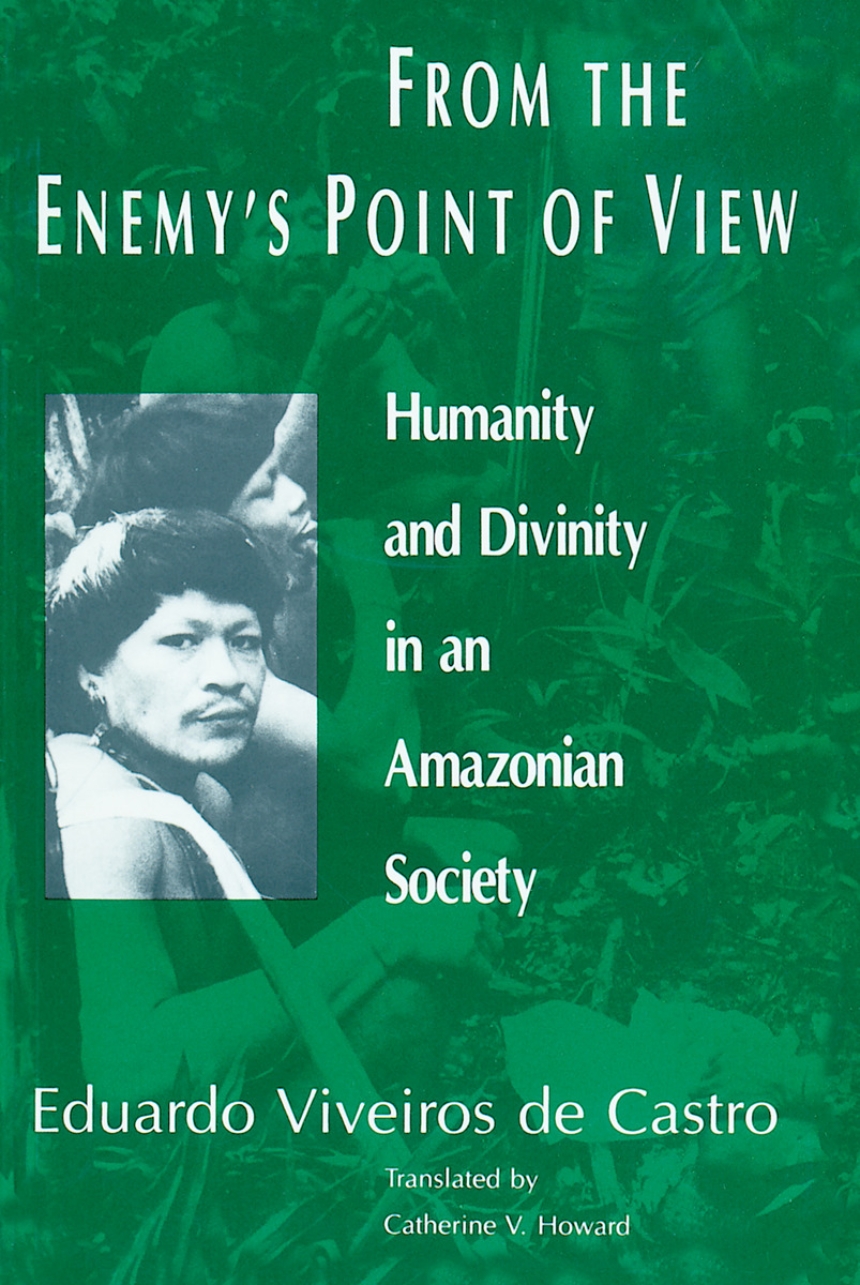From the Enemy’s Point of View
Humanity and Divinity in an Amazonian Society
9780226858029
9780226858012
9780226768830
From the Enemy’s Point of View
Humanity and Divinity in an Amazonian Society
The Araweté are one of the few Amazonian peoples who have maintained their cultural integrity in the face of the destructive forces of European imperialism. In this landmark study, anthropologist Eduardo Viveiros de Castro explains this phenomenon in terms of Araweté social cosmology and ritual order. His analysis of the social and religious life of the Araweté—a Tupi-Guarani people of Eastern Amazonia—focuses on their concepts of personhood, death, and divinity.
Building upon ethnographic description and interpretation, Viveiros de Castro addresses the central aspect of the Arawete's concept of divinity—consumption—showing how its cannibalistic expression differs radically from traditional representations of other Amazonian societies. He situates the Araweté in contemporary anthropology as a people whose vision of the world is complex, tragic, and dynamic, and whose society commands our attention for its extraordinary openness to exteriority and transformation. For the Araweté the person is always in transition, an outlook expressed in the mythology of their gods, whose cannibalistic ways they imitate. From the Enemy's Point of View argues that current concepts of society as a discrete, bounded entity which maintains a difference between "interior" and "exterior" are wholly inappropriate in this and in many other Amazonian societies.
Building upon ethnographic description and interpretation, Viveiros de Castro addresses the central aspect of the Arawete's concept of divinity—consumption—showing how its cannibalistic expression differs radically from traditional representations of other Amazonian societies. He situates the Araweté in contemporary anthropology as a people whose vision of the world is complex, tragic, and dynamic, and whose society commands our attention for its extraordinary openness to exteriority and transformation. For the Araweté the person is always in transition, an outlook expressed in the mythology of their gods, whose cannibalistic ways they imitate. From the Enemy's Point of View argues that current concepts of society as a discrete, bounded entity which maintains a difference between "interior" and "exterior" are wholly inappropriate in this and in many other Amazonian societies.
428 pages | 4 line drawings, 6 maps, 24 photos, 5 tables | 6 x 9 | © 1992
Anthropology: Cultural and Social Anthropology
Religion: South and East Asian Religions
Table of Contents
List of Illustrations
Translator’s Note
Preface
Note on Orthography
1. Cosmology and Society
1. The Cannibal Gods
2. Living with the Araweté
3. The Tupi-Guarani Landscape
2. Approaching the Araweté
1. The Country
2. The Regional Context
3. The People
4. History
3. The Forsaken Ones
1. The Separation
2. Who’s Who in the Cosmos
3. Gods and Spirits
4. Tupi-Guarani Cosmologies
4. The Frame of Life
1. The Year
2. The Village
3. A Day in the Dry Season
4. Difficulty at the Beginning
5. Nurture and Supernature
1. Mild Beer
2. Strong Beer
3. Meat and Honey
4. The Alimentary Forms of the Religious Life
6. Familiar Terms
1. The Mixture
2. Names
3. Relatives
4. Eluding Affinity
7. Birth, Copulation, and Death
1. The Facts of Life
2. Passions
3. Death
4. Only the Bones Forget
8. Alien Words
1. The Marriage of Heaven and Earth
2. Shamanism and the Music of the Gods
3. Killers and the Music of Enemies
4. The Enemy’s Point of View
9. Beings of Becoming
1. The Cannibal Cogito
2. Spiritual Dualism and the Cosmological Triads
3. My Brother-in-law the Jaguar
10. The Anti-Narcissus
1. Vengeance and Sacrifice
2. A Rare Bird
3. On Dialogical Anthropology
4. The Anti-Social Contract
5. Eaters of Raw Flesh
Appendix 1-A: Araweté Villages in 1981-83
Appendix 1-B: List of Historical Araweté Villages
Appendix 2-A: Araweté Population
Appendix 2-B: Genealogies
Appendix 3: Botanical and Zoological Terms
(English, Portuguese, Araweté, Latin)
Appendix 4: Glossary of Araweté Terms
Notes
Works Cited
Index
Translator’s Note
Preface
Note on Orthography
1. Cosmology and Society
1. The Cannibal Gods
2. Living with the Araweté
3. The Tupi-Guarani Landscape
2. Approaching the Araweté
1. The Country
2. The Regional Context
3. The People
4. History
3. The Forsaken Ones
1. The Separation
2. Who’s Who in the Cosmos
3. Gods and Spirits
4. Tupi-Guarani Cosmologies
4. The Frame of Life
1. The Year
2. The Village
3. A Day in the Dry Season
4. Difficulty at the Beginning
5. Nurture and Supernature
1. Mild Beer
2. Strong Beer
3. Meat and Honey
4. The Alimentary Forms of the Religious Life
6. Familiar Terms
1. The Mixture
2. Names
3. Relatives
4. Eluding Affinity
7. Birth, Copulation, and Death
1. The Facts of Life
2. Passions
3. Death
4. Only the Bones Forget
8. Alien Words
1. The Marriage of Heaven and Earth
2. Shamanism and the Music of the Gods
3. Killers and the Music of Enemies
4. The Enemy’s Point of View
9. Beings of Becoming
1. The Cannibal Cogito
2. Spiritual Dualism and the Cosmological Triads
3. My Brother-in-law the Jaguar
10. The Anti-Narcissus
1. Vengeance and Sacrifice
2. A Rare Bird
3. On Dialogical Anthropology
4. The Anti-Social Contract
5. Eaters of Raw Flesh
Appendix 1-A: Araweté Villages in 1981-83
Appendix 1-B: List of Historical Araweté Villages
Appendix 2-A: Araweté Population
Appendix 2-B: Genealogies
Appendix 3: Botanical and Zoological Terms
(English, Portuguese, Araweté, Latin)
Appendix 4: Glossary of Araweté Terms
Notes
Works Cited
Index
